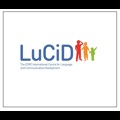
Join us for our LuCiD seminar, featuring an in-person talk on Tuesday, 13th May 2025 (11 am UK time - in-person & via Zoom). Amit Kulkarni (Royal College of Speech and Language Therapists) and Lucy Hughes (Moor House Research and Training Institute; University of Reading) will talk about "Identifying research priorities in Developmental Language Disorder: an adapted research priority setting partnership"
Abstract: Whilst research output continues to grow across health and social care, numerous clinical and professional questions remain unanswered. Funding to explore these questions is limited and as a result, research priority setting activities have developed to identify the most important areas for research. Various approaches have been developed over the past 20 years and within the United Kingdom, the James Lind Alliance (JLA) method has become the dominant model for research priority setting. Within this approach, research priorities are identified in partnership with the people who will use this research, clinicians and other professionals, and the beneficiaries, the clients/patients/service-users themselves. Over the past 10 years, the Royal College of Speech & Language Therapists (RCSLT) has been working to identify research priorities in speech & language therapy. RCSLT priority setting partnerships have considered a number of clinical areas, one of which is Developmental Language Disorder (DLD). Whilst the RCSLT’s approach has drawn heavily from the JLA method, coproducing priorities with people with lived experience of DLD and the professionals that work with them, two major differences exist. Firstly, researchers have been included as partners within the research priority setting process, resulting in input from across all interest-holders. Secondly, given the cognitive and communication demands of typical research priority setting activities, JLA methods have been adapted to enable meaningful coproduction with people with communication needs. This presentation will discuss the RCSLT’s work carrying out two phases of a research priority setting partnership in DLD. It will discuss the methods used across both phases of the project, alongside the results of phase 1, and interim results of phase 2 (final results pending). It will consider the challenges of coproducing research priorities with children, young people, and adults with DLD, alongside the benefits of coproduction, with specific consideration of impact. DLD is a prevalent and impactful condition with a range of long term sequalae. Developments in our understanding of both typical and atypical language development feed into clinical practice for people with DLD. However, many important clinical questions remain and as such, this talk will present important considerations for anyone interested in DLD, or language development in a broader sense.
How to join the seminar: This seminar will take place in person at the University of Manchester, but we will provide a blended approach for anyone who is unable to attend in person. As always the seminar is free to attend & booking isn't required, just get in touch to request the zoom link and don't forget to join the seminar mailing list
Where to find us on the day: The seminar will be held at the University of Manchester, Samuel Alexander Building A101. The building is marked as number 67 on the campus map.

